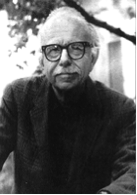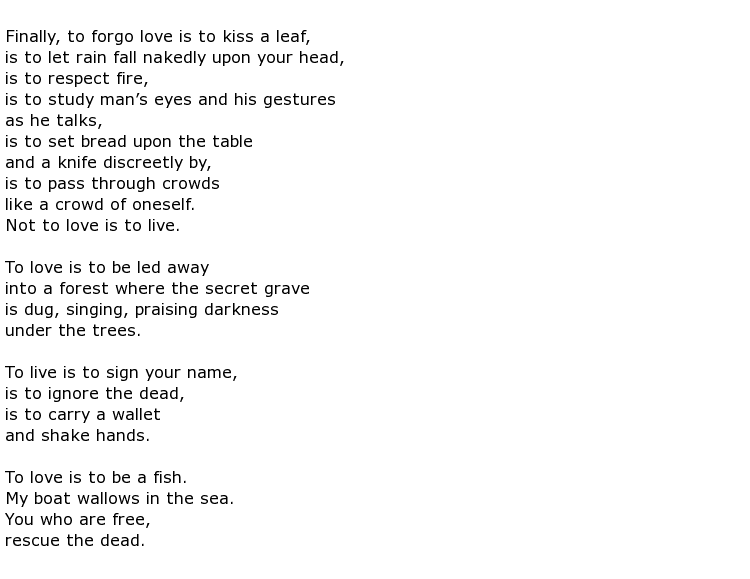 David Ignatow was an American poet who was born and raised in Brooklyn, New York. While many other writers have used travel to broaden their minds and experiences, Ignatow saw all the life he needed to see in New York City and stayed close to home, writing in a direct, down to earth style that appealed to his readers. There was no privileged family background to fall back on for David Ignatow. He was only able to write his poetry because, in between times, he worked for a living. He was never too proud to do low paid jobs such as messenger or admissions clerk in a hospital. Despite living through some lean times such as the Depression era Ignatow survived and was responsible for some 25 books in his lifetime, either writing them himself or editing other’s work.
David Ignatow was an American poet who was born and raised in Brooklyn, New York. While many other writers have used travel to broaden their minds and experiences, Ignatow saw all the life he needed to see in New York City and stayed close to home, writing in a direct, down to earth style that appealed to his readers. There was no privileged family background to fall back on for David Ignatow. He was only able to write his poetry because, in between times, he worked for a living. He was never too proud to do low paid jobs such as messenger or admissions clerk in a hospital. Despite living through some lean times such as the Depression era Ignatow survived and was responsible for some 25 books in his lifetime, either writing them himself or editing other’s work.
David Ignatow was born in February 1914 in Brooklyn. His parents struggled to keep their own business afloat and Ignatow listened with interest to their conversations deciding, at an early age, that the world of commerce and money making was not for him. He saw it as a restriction of personal freedom and, when he left high school, refused to join the business. He decided, instead, to seek out some suitable employment which would afford him the time to write poetry. Inspired by the writing and philosophy of the poet Walt Whitman he saw, even at so young an age, that money, and the pursuit of it, was a source of some of the evils and injustices that he was already seeing in the world.
He found himself moving from situation to situation, never finding peace and happiness in any job that he tried. There just didn’t seem enough time to work and write his poetry and so, reluctantly, he found himself working in the family business after all. He was now on the other side of the shop floor and the responsibilities of managing people did not sit well with him. He felt that the workers were being exploited for the sake of profit. Paradoxically, they told him that they were content in their role and that their labours were just a means to an end. Working meant that they would be able to maintain a standard of living that would make them relatively happy with their lives.
Ignatow accepted their point of view but saw it as a kind of trade-off where man has to sacrifice something to get something else. On this subject he wrote:

Some of his early poetry explores this perpetual struggle in depth. Volumes such as Poems, The Gentle Weight Lifter, and Say Pardon also covered the economic situation that he saw in depression-ravaged America, in the 1930s, and he made struggle a common theme throughout the decades of his life. The Second World War in the 40s and then Vietnam in the 60s affected him deeply. His poem Figures of the Human was a rage against America’s role in Vietnam and, similarly, Rescue the Dead alluded to ordinary men being forced to kill by the killers in their own country.

Overall though, David Ignatow will be remembered as a poet who emerged from a humble background and wrote deeply moving poetry about the issues and struggles faced by his fellow men throughout their daily lives. He gathered honours and awards on a regular basis including a Bollingen prize, the John Steinbeck award and two Guggenheim fellowships.
David Ignatow died in November 1997, at his home in East Hampton, New York, aged 83.

